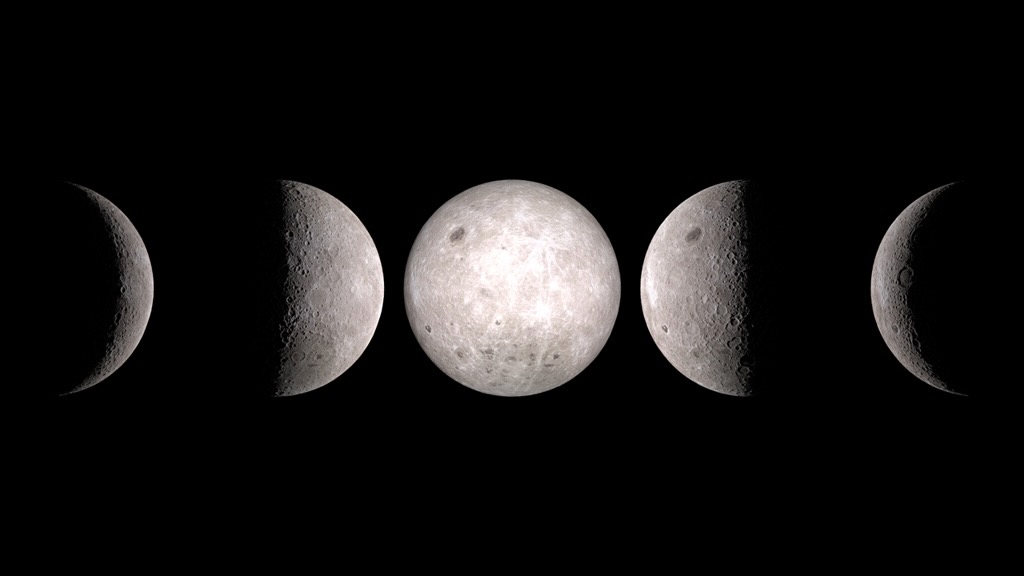
The mysterious dark side of the moon is a challenging target for space missions. But China has now completed its second successful touchdown and collected a sample of lunar soil, which is currently on its way back to Earth.
The great space powers are currently locked in a race to return humans to the moon and even establish a more permanent presence on our nearest celestial neighbor. China’s successful mission is the third landing on the lunar surface this year, and a host of missions are scheduled over the remainder of the decade.
So far, the country is the only one to have managed the challenging feat of a soft touchdown on the side of the moon permanently facing away from Earth. With no direct line of sight, missions have to rely on a combination of automation and relayed communication signals with a heavy lag.
Despite that, the Chang’e-6 spacecraft successfully landed in the South Pole-Aitken basin on Sunday loaded with equipment for retrieving samples from the surface. On Wednesday, a vehicle loaded with roughly 4.5 pounds of lunar material launched and docked with the mission’s orbiter.
“Incredible!” tweeted Josef Aschbacher, director general of the European Space Agency (ESA), which had contributed one of the mission’s instruments. “Congratulations to the Chinese National Space Agency on the remarkable success of Chang’e-6 mission thus far. It’s a wonderful accomplishment.”
The mission involves a complicated dance between four different spacecraft modules—an orbiter, a lander, an ascender, and a reentry vehicle. After establishing a stable orbit, the lander detached from the main spacecraft and descended using an autonomous visual obstacle avoidance system to pick a safe landing spot.
Once on the surface, a drill and robotic arm collected samples and loaded them into the ascender which blasted back up into orbit. After successfully rendezvousing with the orbiter, the spacecraft will now return to Earth, where a reentry module will safely deliver the samples to a landing site in Inner Mongolia, a region in northern China.
The complexity of the mission hints at China’s broader plans for the moon. It wasn’t strictly necessary for the ascender to link back up with the orbiter, but the maneuver is likely a test run for a future manned mission in which astronauts will need to transfer from the surface to a return vehicle.
The country has said it hopes to land humans on the moon before the end of the decade and already has two more lunar missions scheduled in the coming years. The Chang’e-7 mission scheduled for 2026 will explore the Shackleton crater close to the moon’s south pole, which is seen as a promising landing site for manned missions.
And in 2028, Chang’e-8 will deliver several pieces of equipment designed to support a longer-term human presence on the moon. These include a device that will use solar power to melt lunar soil and fashion it into components and a miniature terrestrial ecosystem of plants and microbes that will test the possibility of producing food and oxygen on the lunar surface.
They aren’t the only ones eyeing the south pole though. NASA’s Artemis program is looking to land humans on the moon by 2026 and also planning to carry out various experiments aimed at supporting a permanent base on the surface. Last month, the US space agency announced the missions will carry an experiment to grow three crops on the moon and instruments designed to hunt for water ice, which can be used to create oxygen and hydrogen—a potential rocket fuel.
This new space race is probably driven as much by heightened geopolitical tensions as it is scientific or commercial value. But if it spurs a new push to move further out into the solar system, that can only be a good thing for humanity.
Image Credit: Visualization of the phases of the far side of the moon / NASA’s Scientific Visualization Studio
- SEO Powered Content & PR Distribution. Get Amplified Today.
- PlatoData.Network Vertical Generative Ai. Empower Yourself. Access Here.
- PlatoAiStream. Web3 Intelligence. Knowledge Amplified. Access Here.
- PlatoESG. Carbon, CleanTech, Energy, Environment, Solar, Waste Management. Access Here.
- PlatoHealth. Biotech and Clinical Trials Intelligence. Access Here.
- Source: https://singularityhub.com/2024/06/06/chinas-change-6-mission-the-first-soil-from-the-far-side-of-the-moon-is-headed-home/



